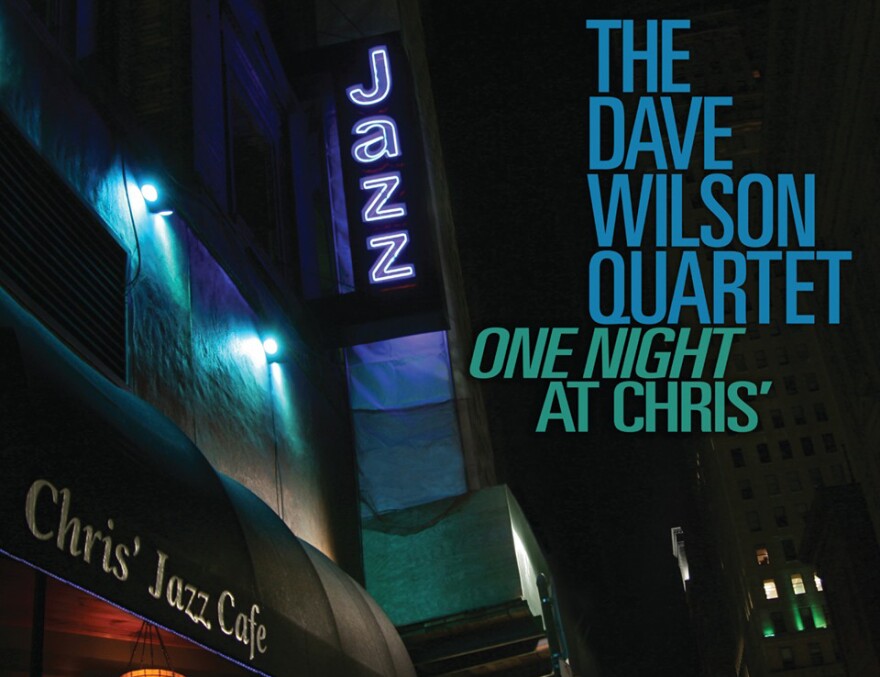August 26, 2019. Saxophonist Dave Wilson may be the coolest thing to come out of Lancaster since Dutch Wonderland—and Dutch Wonderland is pretty cool. For family fun, you can’t beat the log flume. But if the aim is to recreate a sophisticated evening of live jazz in the comfort of your own home, you really can’t beat One Night at Chris’, the fifth recording from The Dave Wilson Quartet.
Recorded before a live audience at Chris’ Jazz Café, Philadelphia’s longstanding jazz club par excellence, One Night at Chris’s accomplishes all you could want from a live recording: genre-bending covers and bold originals, a fusion of the straight ahead and the slightly more avant-garde, and easy chemistry between a great group of musicians, each of whom are playing at or near their best.
Wilson studied under greats like Dave Liebman and Bill Barron (older brother of pianist Kenny Barron). And like his mentors, Wilson plays with great facility on both tenor and soprano saxophones.
Wilson’s turns on soprano include an up-tempo take on the Grateful Dead’s “Friend of the Devil” that recalls Branford Marsalis’s string of early nineties guest-spots with the Dead and an ethereal yet earnest rendition of The Beach Boys’ “God Only Knows,” perhaps better known these days as the opening theme for HBO’s Big Love.
While these soprano-led tunes are highlights, it is Wilson’s aggressive, sometimes even borderline violent, tenor playing, especially in the instrument’s lower register, that makes the most lasting impact here. Think about some of the great tenors of postwar R&B—names like Coleman Hawkins and Jimmy Forrest. “Ocean Blues,” the Wilson original that opens the album, resurrects these names and announces, with not just a little bravado, that this throwback sound isn’t dead.
Although “resurrects” is never quite the right way to put it with jazz, because to resurrect something implies that it’s died in the first place—and jazz never dies; it just hibernates for a bit until it can, once more, add something new to the canon of America’s indigenous music.
So when Wilson and pianist Kirk Reese reprise an old favorite they call “Untitled Modal Tune,” they’re not resurrecting the John Coltrane and McCoy Tyner influences that so clearly color the piece, they’re simply waking up parts of a shared musical consciousness where Coltrane and Tyner reside in perpetuity.
Amidst all this conjuring and summoning, drummer Dan Monaghan and bassist Tony Marino serve as expert mediums, facilitating with ease and swinging hard when they must, as, for instance, when Monaghan finds himself trading eights with Wilson on one side and Reese on the other near the end of “Untitled Modal….”
Marino, for his part, serves as the group’s gravity, keeping the group tied to a regular orbit lest they be jettisoned into the abyss after dipping several toes into the unknowable depths of the avant-garde. See the quartet’s takes on The Beatles’ “Norwegian Wood” and a nearly twelve-minute version of Gershwin’s “Summertime” for the best illustrations of this cosmic phenomenon.
Wilson and company close by reprising “Spiral” from their 2010 album of the same name. The back and forth dialogue between Wilson and Reese suggests a kind of ancient, interminable conversation, where the speakers are happily resigned to there being no resolution in sight.


